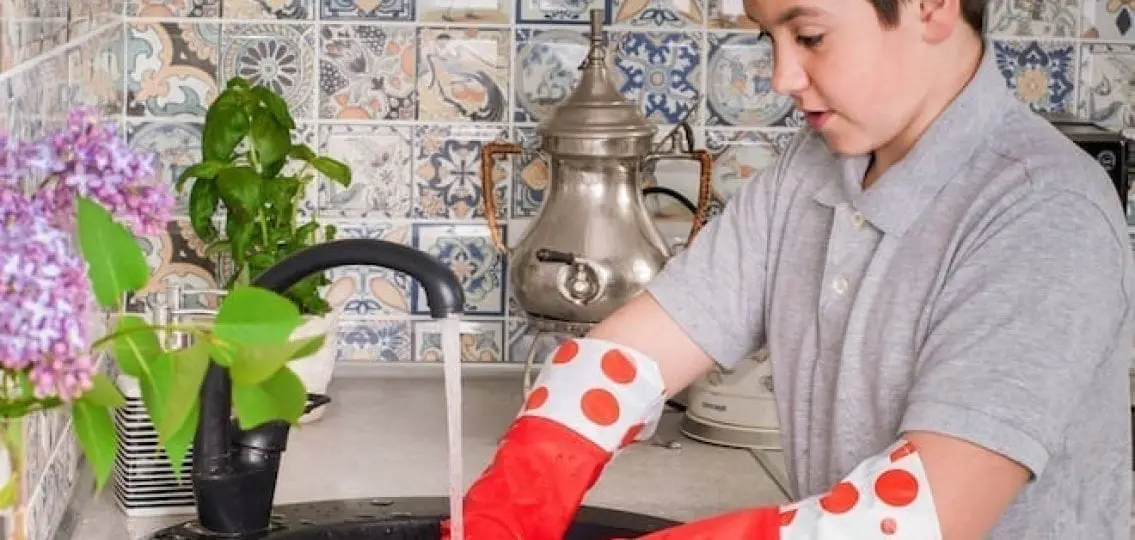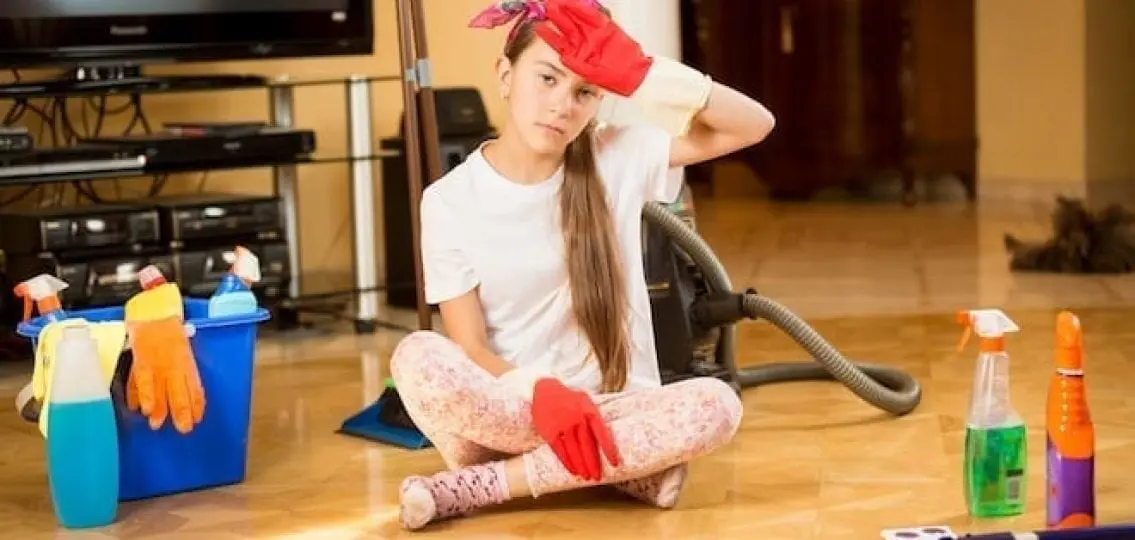I struggle with chores for my kids. My son’s room is buried under an eruption of clothing. I can no longer tell what’s clean or dirty. I can barely even open the door to assess the situation, thanks to the pile of shoes behind it.

When I recently called for a room cleanup, my son obliged by gathering armfuls of clothing and dumping them on the laundry room floor. I found pristinely folded shirts, swimsuits from summers ago, and winter coats all commingling in one big Mt. Laundrymore.
Getting middle schoolers to contribute more around the house is a noble goal, but sometimes it seems to create more work than if they hadn’t “helped” at all. Kids should learn how to pitch in, but in a way that really does add value to the family. Here are my tips for getting your tween to do chores that actually help you.
3 Tips to Get Real Help With Chores
1. Decide what’s reasonable and helpful.
Lots of my friends make their middle schoolers do their own laundry. That’s amazing, but not for me. I get hives thinking about the added cost of clothes shrinking, going unwashed, or lingering in the dryer for too long and getting in my way. I hate doing laundry, but I think I may hate other people doing the laundry more. I’ve taught them how, and they do it from time to time, but mostly laundry is not a chore I care to hand off to my kids. It’s just easier for me to manage.
The point is, I choose chores that really are helpful, not a hindrance, to my way of life.
For me, unloading the dishwasher is a major pain. I used to ask my kids to unload the dishwasher together every night, but that led to fights over who got the top or bottom rack and how the silverware would be split evenly. A few weeks ago I started a rotation where each kid does the entire thing one night and then gets a night off. There have been no complaints since.
Think about where you need help, what skills your kids need to learn, and what you’d rather handle on your own. I tell my kids they need to spend at least 15 minutes a day doing something that takes care of their space, and 15 minutes a day doing something that takes care of family space.
2. Schedule a time to talk about chores.
There were moments in the past, especially when my kids were younger, when I reached my limit and snapped. “Pick this stuff up! We can’t live like this!” It didn’t work.
Don’t wait until the last straw to yell at your kids to pitch in. Instead, take that list of chores and schedule a time to talk. The best time to ask for help is when things are going well. Kids like to feel like they’re contributing and valued, and when you set expectations so that they can achieve those feelings, it’s a victory.
3. Tell them how, set a deadline, and walk away.
After Mt. Laundrymore happened, I asked my son what was going on with all the clothes in his room. Turns out that—no surprise—he doesn’t mind all the clothes lying around. But it also turns out that nothing fits in his dresser because—and this was a surprise—his dresser is full of clothes that are too small. I had forgotten how much he’d grown through middle school and how little we’d purged.
So I handed my son two giant trash bags and relayed these instructions: “Hey, it’s time to organize these clothes. Here are some trash bags. You need to take all the clothes that don’t fit and put them in here. Then put all your good clothes in the dresser. It has to be done by 5.” I gave him three hours to do a 15-minute task. I made him repeat the details back to me. And then I left.

No one likes being micromanaged. Perhaps he’ll do a great job … or a terrible job. It doesn’t really matter. The point is that he’s gaining experience and I’m getting some help. Win-win.




